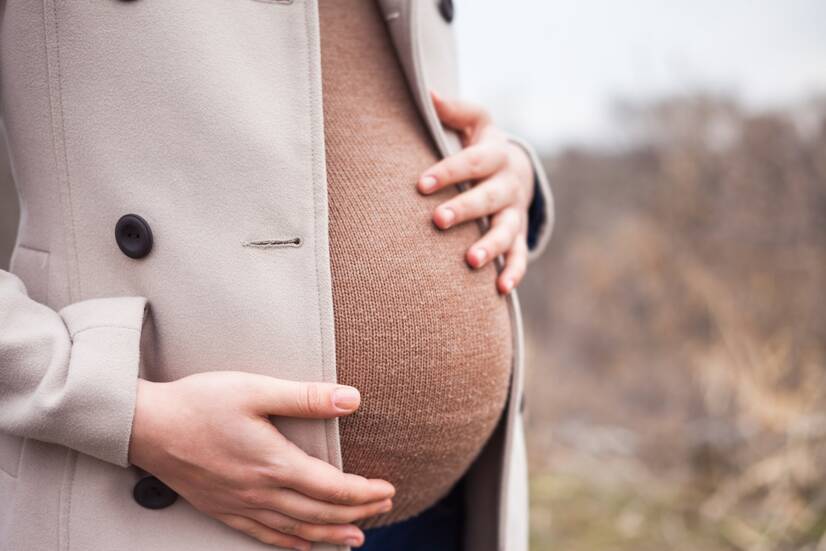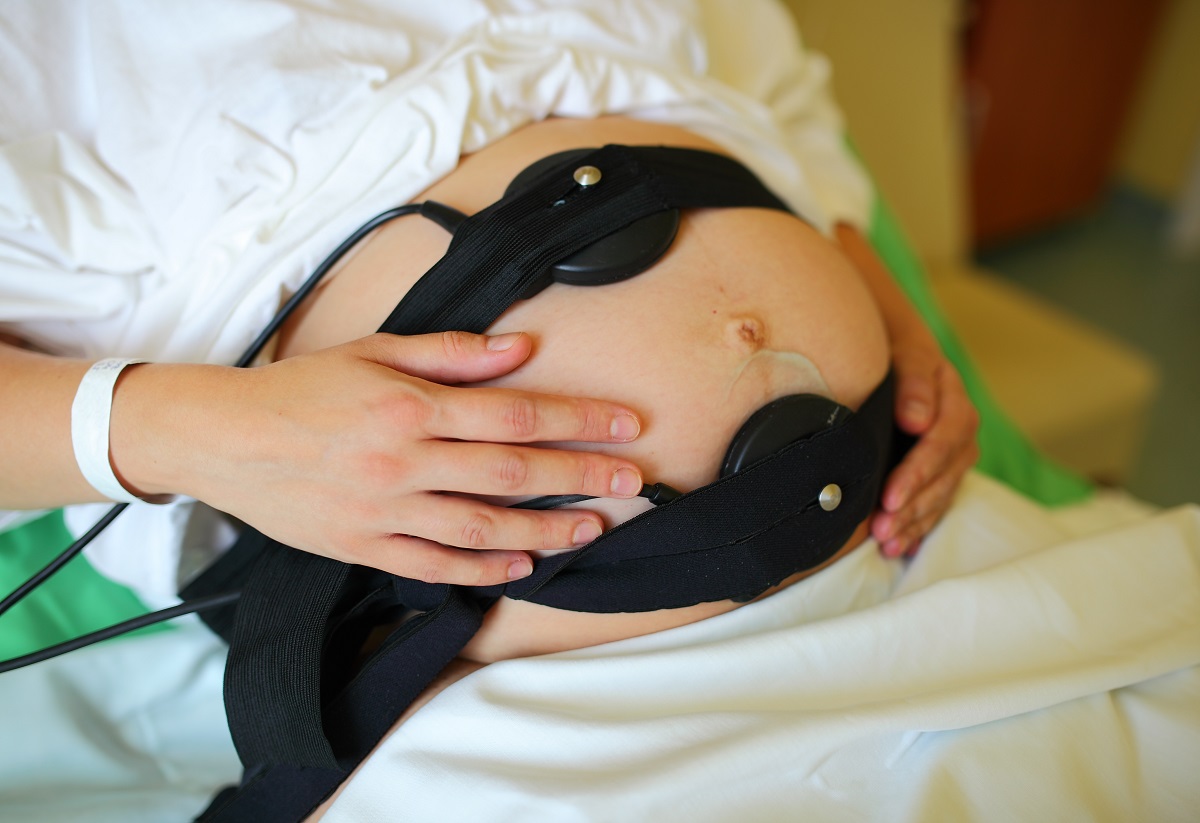- healthline.com - 37th week of pregnancy: symptoms, advice and more
- Whattoexpect.com - 37th week of pregnancy
- verywellfamily.com - 37th week of pregnancy
37th week of pregnancy: has the baby already taken a definite position?

A few months ago, you found out you were pregnant. Your baby was the size of a bean. You couldn't wait to be in your third trimester. And now it's here. Every day you get closer to giving birth and finally holding your baby in your arms.
Article content
Your baby is ripe and could be born at any time.
The baby's position is already definite.
There is very little chance that the fetus will turn, due to the lack of space in the uterus and the confined space. If the baby is in the pelvis or at the end of the pelvis, you will most likely be scheduled for a cesarean delivery.
How is your baby developing in your tummy?
The approximate weight of the fetus is 2860 g and the length is 48 cm.
The baby is growing. All the organs are already developed but are still improving. The brain is still maturing and the immune system is also developing.
The skull is still soft to allow passage through the birth canal. Some of the tiny bones don't fuse together until after birth.
The baby's head continues to grow. At birth, it will be about the same diameter as its chest.
The lanugo has almost completely disappeared from his skin.
His lungs have matured. In the womb, the baby continues to practice breathing movements, inhaling and exhaling amniotic fluid.
His hearing is very sensitive. He perceives all the sounds of his surroundings and feels the sound and beat of his mother's heart.
He can already grasp smaller objects, such as his nose, with his fingers.
His fingernails are still growing, but they are soft.
He sucks his finger in preparation for feeding.
The baby perceives all sounds, voices and his mother's mood.
The baby takes in a lot of amniotic fluid, which it drinks and expels. It also begins to deposit it in the intestines as smolka. Smolka is the first stool that sets the intestines in motion after birth.
If the stool is passed prematurely, the amniotic fluid becomes discolored and becomes unsafe for the baby. This is not a good sign.
The baby sleeps a lot. When he's awake, he blinks his eyes and rolls from side to side.
He's already acting like a newborn. He has periods of activity and quiet, periods of deep sleep when he hardly moves. There are alternating periods of sleep and activity. Walking can wake him from sleep.
The table shows the approximate dimensions of the fetus at 37 weeks according to sonographic measurements
| Total length | Weight | HC Head circumference | BPD Transverse diameter of the head | AC Abdominal circumference | FL Femur length |
| 48.6 cm | 2860 g | 324.1 mm | 92.5 mm | 322,3 mm | 68 mm |
For more information on fetal size, see the article:
Ultrasound in pregnancy: fetal size, what is fetal biometry?
If you notice that it's not moving as much as it was a few days ago, you'd better call the doctor. Your baby may just be having a lazy day. But very rarely, it may also indicate a problem that requires immediate medical attention.
If you think something is wrong, you'd better see your doctor right away.
If you are expecting twins, their space in the womb is very tight. The movements are more like a creak or just a gentle shifting. Both babies are developed and are now gaining weight. They are slightly smaller than the one baby in the womb.
How does the woman feel at 37 weeks?
Slow weight gain. Don't feel ashamed that you're not gaining enough. Some women don't gain weight at all in the third trimester.
Your breasts are full of colostrum, the first nourishing, antibody-rich fluid that the baby feeds on after birth. Colostrum is already forming in your breasts during pregnancy. For the first few days, it will nourish your baby as he matures and cleans his bowels. It will help him get rid of the smolka, the newborn's first stool.
The fetus should be turned with its head towards the pelvic floor and progress down into the pelvis.
The tummy slowly drops and you can finally take a deep breath.
You feel pressure on your bladder. You are forced to urinate more often, but you breathe better because your abdomen has dropped.
When the baby's head is more in the pelvis, it will have much less room to move. The important thing is that you feel the movements every day.
Vaginal discharge is common in the last weeks of pregnancy.
Pink or brown coloured vaginal discharge means that the cervix is dilating and the delicate blood vessels are bursting. The cervix is preparing for birth.
You may not even notice that the mucus plug is coming off. All or part of it may come loose. It is not a rule that labour starts within hours of the plug coming off. Sometimes it can take several days or weeks. You also don't have to worry about an increased risk of infection to the foetus after it comes off.
The symptoms of pregnancy at 37 weeks are probably all familiar to you.
Try putting your legs on a pillow and trying to rest more. The pressure of the growing belly on the pelvis reduces blood flow to the legs. This causes swelling, varicose veins and the appearance of uncomfortable hemorrhoids.
Constipation is also related to the formation of hemorrhoids. As a result of the pressure of the baby on the pelvis and the pressure of the stool, the veins are more strained. Try not to push too hard when passing stool, rather focus on softening the stool.
Soften stools by adding fibre to the diet and adequate fluid intake. Remove foods from the diet that cause stools to harden. Replace white bread with whole grains, reduce the intake of milk, dairy products and rice and add a vegetable side dish.
Excessive fatigue. Your body exerts more effort, you are not able to get a good night's sleep. You wake up, suffer from insomnia, your stomach tightens and it also puts pressure on your bladder. This causes you to get up frequently to go to the toilet. All this makes you feel tired.
Digestive problems such as heartburn, urge to vomit and shortness of breath slowly subside as the abdomen goes down.
Leg cramps most often bother you at night.
As your tummy grows and your skin tightens, stretch marks form. Stretch marks form especially on your stomach, breasts and hips. Don't worry about them. They fade a few days after birth and become a sign of your pride. To alleviate them, reapply creams to your skin regularly to prevent it from becoming too dry.
Pelvic pain. The baby's head is pressing on your pelvis, hips and bladder. As the weeks go by and the baby's head drops, you may feel more and more pressure.
The messengers (Braxton-Hicks contractions) may start to appear more frequently. They may also appear as more painful contractions that are irregular for now. Try changing your position, drinking water and calming down.
Real labour pains usually start in the upper part of the uterus and are regular. False contractions are in the pelvis, lower back, lower abdomen and are irregular. The messengers may be more painful. This moves more blood to the placenta, which is good for your baby as it is more supplied with blood and nutrients.
If the contractions start to get stronger and come at regular intervals, you are likely to go into labour.
For more information about labour and its symptoms, see our article .
The lower the baby is in the birth canal, the closer you are to giving birth.
If you're expecting twins, get plenty of rest with your feet up, don't overeat, and eat healthy.
The end of pregnancy may be too long for you. You may be nervous about it. On the other hand, you may be excited and want your baby to be born before your due date. Be patient. Patience is the best gift you can give yourself and your baby.
Are you already nervous and uneasy? Try to think that soon there will be one more of you. You will finally hold your baby in your arms.
Pregnancy brain. You have a lot of things in your head right now that you need to equip, complete and keep track of. Don't be surprised if you sometimes feel like you're losing your mind.
Wondering what color hair your baby will have? You'll find out soon enough.
You don't know what to do with yourself, you want to have everything clean, tidy, ready, you shop, you choose, you watch every detail that you could improve at home. It's called the nesting syndrome. A pregnant woman tries to prepare everything perfectly for the arrival of her baby so that she doesn't miss anything.
What kind of tests do you expect at 37 weeks?
The clinic visit is every week.
You have already got used to it and know what to expect.
Your blood pressure is taken, your urine is examined and your weight is recorded. The doctor looks for swelling, checks the growth of the uterus, looks at the maturity of the cervix, its consistency. You have a CT scan. For delivery, the cervix must be opened to 10 cm to allow the baby to pass into the birth canal.

Cardiotocography is performed weekly from week 37. During this examination, the fetal heart and uterine tension are scanned. The examination takes about 30 minutes. You lie or sit and two probes are loaded on your abdomen using a belt to scan for contractions and the fetal heart.
This examination can quickly tell if the baby is well, oxygenated and if uterine contractions are starting.
You may have had cerclage early in your pregnancy, in which your doctor stitched your cervical muscles to keep them from opening and prevent premature birth. If so, your doctor will probably remove the stitches this week.
Removing the stitches is painless and easy. Sometimes it is accompanied by light bleeding, spotting. A small percentage of women give birth within 48 hours after cerclage removal. The average time to give birth after cerclage removal is 14 to 16 days, and labor proceeds quite normally.
If you are concerned about your health or the health of your baby, your doctor will send you to the hospital for hospitalization, where he or she will recommend artificial induction of labor.
Induction of labour is done in different ways. Your doctor will choose the best way to induce labour based on the examination and your condition.
Induction may be done with the drug prostaglandin, which promotes the ripening of the cervix. This causes it to open and produce contractions.
Artificial rupture of the amniotic sac. During vaginal delivery, the amniotic sac is ruptured to release the amniotic fluid, which drains away. The head drops, pressing on the cervix and causing uterine contractions.
The administration of oxytocin induces contractions.
If you're expecting twins, check-ups at the clinic will probably be twice a week. The cervix will be checked and labour will be induced.
Twins are more likely to give birth in the near future. There are also several reasons why your doctor may decide to induce labour or schedule a caesarean section. This may prevent complications.
Most likely, the delivery will be conducted by cesarean section to avoid complications when the twins are born. However, it depends, of course, on the location of the babies in the uterus.
What if the baby is born now?
Your baby is fully developed. If it were born this week, it would be considered a premature newborn.
Its body is supplied with enough fat to maintain body temperature. After a few days, you would both be discharged home.
What can we recommend
- Plenty of rest.
- Avoid long periods of standing and sitting. Change positions and rest with your legs stretched out.
- Ease your legs whenever you can to avoid pain, swelling and uncomfortable varicose veins.
- Practice the breathing exercises and birthing techniques shown to you in antenatal preparation.
- Exercise on a ball that helps engage your pelvic muscles.
- Practise Kegel exercises to strengthen the pelvic floor, which also have a positive effect on postnatal recovery.
- Gently rub your breasts with a towel to prepare your nipples for breastfeeding.
- Remember to drink enough to keep yourself and baby hydrated.
- Take time for yourself, relax and feel.
- Talk to your baby in your tummy and stroke him to make him feel you.
- Try to avoid stress and remove fear. Go for a walk, preferably in nature where you can think in peace.
- You have probably already chosen a name for your baby. If not, it's high time.
You've probably already got everything ready, arranged, checked your maternity bag. Now you're just waiting for the big day when your longed-for baby sees the light of day and you become a mother.
Find out more about the remaining weeks of pregnancy in the summary article.
Gallery

Interesting resources
Related










